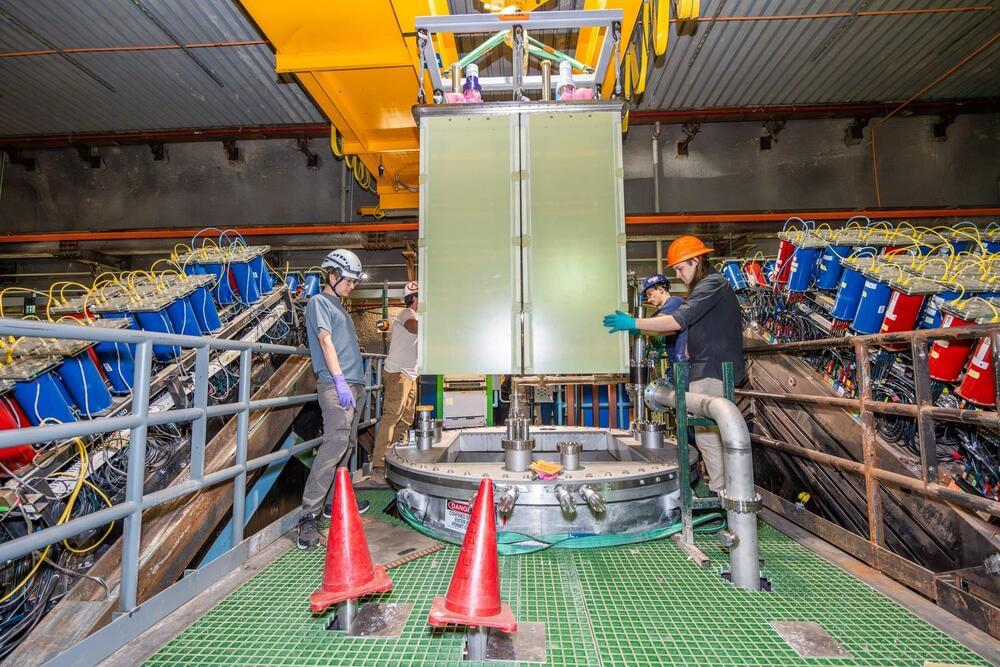Long before the Deep Underground Neutrino Experiment takes its first measurements in an effort to expand our understanding of the universe, a prototype for one of the experiment’s detectors is blazing new trails in neutrino detection technology.
DUNE, currently under construction, will be a massive experiment that spans more than 800 miles. A beam of neutrinos originating at the U.S. Department of Energy’s Fermi National Accelerator Laboratory will pass through a particle detector located on the Fermilab site, then travel through the ground to a huge detector at the Sanford Underground Research Facility in South Dakota.
The near detector consists of a set of particle detection systems. One of them, known as the ND-LAr, will feature a liquid-argon time projection chamber to record particle tracks; it will be placed inside a container full of liquid argon. When a neutrino collides with one of the particles that make up argon atoms, the collision generates more particles. As each particle created in the collision travels out of the nucleus, it interacts with nearby atoms, stripping off some of their electrons, leading to the production of detectable signals in the form of light and charge.
